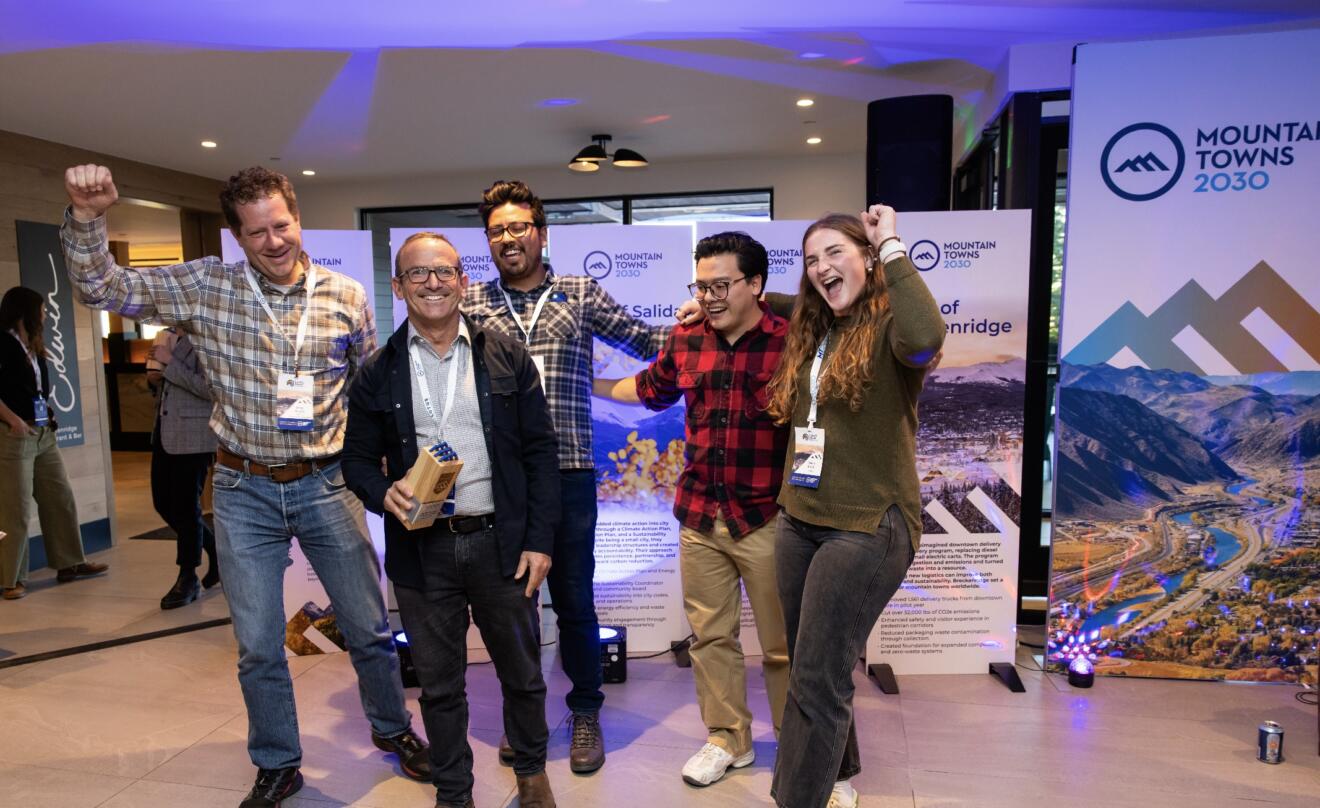
At the 2025 Mountain Towns 2030 Summit in Breckenridge, Colorado, Park City, Utah, received the Collaboration of the Year award for its innovative Zero Food Waste Restaurant Cohort — a partnership between the Park City Community Foundation (PCCF), the Park City Chamber Park City Chamber of Commerce Convention & Visitors Bureau (PCCVB)), and national nonprofit ReFED.
This pilot initiative addresses a key climate and community issue: reducing the volume of food waste generated by local restaurants and diverting unavoidable waste from the landfill. The collaboration brings together philanthropic leadership, tourism-sector reach, and technical food waste expertise to create a model for climate-forward business engagement.
Why It Matters
Food waste is a potent climate issue. When sent to landfills, it breaks down and emits methane — a greenhouse gas more than 80 times more potent than CO₂ over a 20-year period. Summit County’s climate goals include reducing emissions across sectors, and food waste emerged as a critical target.
“After talking with experts, their answer was food waste,” said Andy Hecht, Climate Fund Manager at the Park City Community Foundation. “It’s one of the largest contributors to our greenhouse gases across the community.”
Program Overview: What Participating Restaurants Receive
As part of the Zero Food Waste Restaurant Cohort, participating restaurants and food operators receive:
- Coverage of start-up costs and monthly service fees for food waste diversion services.
- A one-day workshop, held on June 3, 2025, led by ReFED experts to develop customized waste-reduction plans.
- 5–7 hours of follow-up consulting from ReFED to help restaurants implement changes and track progress.
- Fast-tracked entry into the Park City Green Business Program, allowing restaurants to gain sustainability recognition and access related incentives.
“This is a great opportunity for local restaurants to work alongside experts to find customized solutions that will help reduce waste and costs for their businesses,” said Morgan Mingle, Director of Sustainable Tourism at the Park City Chamber & Visitors Bureau.
What Makes This Collaboration Stand Out
This award-winning effort checks multiple boxes that other mountain towns can learn from:
- Cross-sector collaboration: Combines philanthropy, business leadership, and technical expertise.
- Low-barrier entry: Reduces cost and time burdens for restaurants.
- Community alignment: Directly supports Park City’s Zero Food Waste by 2030 community goal.
- Replicability: Offers a tested model for sustainable tourism and small-town climate resilience.
Key Lessons for Other Mountain Communities
- Meet businesses where they are: Start with accessible strategies and expert support.
- Make it visible: Recognition through Green Business programs builds momentum.
- Set community-wide goals: Park City’s “Zero Food Waste by 2030” target serves as a shared north star.
- Scale with partners: A single initiative can multiply its impact when local institutions align resources.

